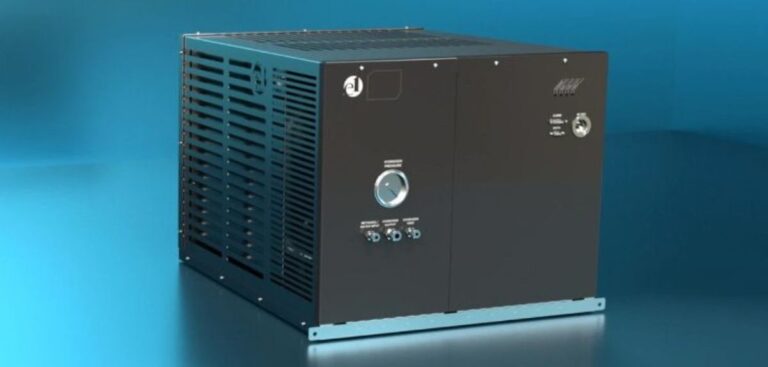Renewable energy company e1 Marine has been commissioned by Current to build an S Series 130 methanol to hydrogen generator, for the development and evaluation of techniques to capture waste heat and CO2 from the exhaust stream produced during the reforming process.
If the laboratory-based tests prove successful, the extra heat and reduced CO2 emissions will improve the economy and environmental footprint of the methanol to hydrogen reforming process. The findings will subsequently be integrated into existing plans to construct commercial vessels with methanol to hydrogen reformers, enabling hydrogen to be used to power fuel cells for generating electricity on electric or hybrid vessels.
The S Series S130 Hydrogen Generator from e1 Marine is a modular system developed for use on board vessels as a quiet, low-vibration and low-emission power solution, or alternatively as a range extender to support battery-centric power solutions on work vessels. The technology can also integrate with proton-exchange membrane fuel cells (PEMFCs).
“Our methanol to hydrogen generators are already providing an accessible, safe and commercially viable low-emission power solution for use in ports and on a range of vessels,” said Robert Schluter, managing director at e1 Marine.
“The technology is already proving to be effective to slash total emissions, including the full removal of particulate matter, SOx and NOx. Although our generators already enable vessel owners to meet the incoming carbon reduction regulations, we are delighted that companies like Current are working to explore how we can help customers get closer to zero carbon emissions.”
When conducting the laboratory testing, Current will work collaboratively with Institutt for Energiteknikk (IFE).
“We recognize the potential of e1 Marine’s ground-breaking technology to chart a clear pathway to decarbonizing the shipping industry,” commented Per Sandven, managing director at Current. “The technology dramatically cut the carbon intensity of marine power for ships in our inland waterways, at sea, or at berth. We look forward to working with e1 Marine to drive further efficiency and emissions reductions with its technology.”



